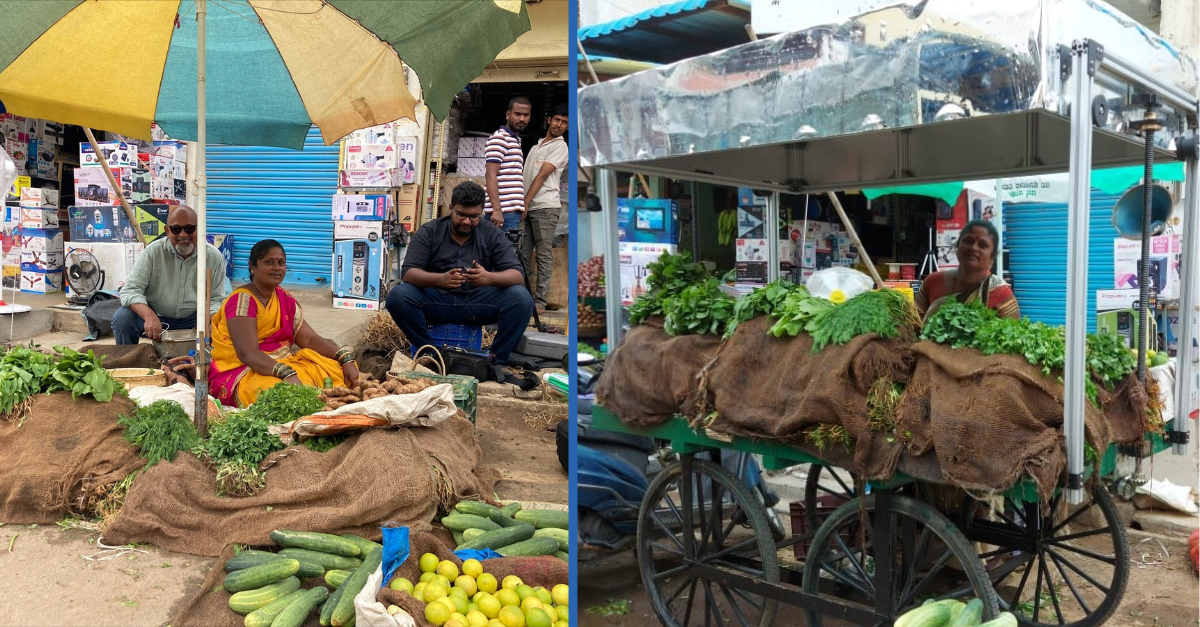Zubin Varghese, senior director of innovation at Trane Technologies, one of the world’s leading manufacturers of heating and cooling systems, argues that connecting people to each other around a common purpose is a critical enabler of employee-driven innovation. A strong sense of purpose embraced and owned by the people, he observes, can inspire a culture of inclusive innovation that leads to creative business solutions that would not have otherwise been envisaged.
Trane Technologies’ drive for social-environmental innovation was not generated by the development of new breakthrough technology but the drive stems from its stated purpose to ‘challenge what’s possible for a sustainable world’. The company decided to engage its employees proactively: “What would make a difference in fulfilling this purpose?” The responses were overwhelming with measures to reduce food loss and hunger topping the list—one of the world’s environmental priorities, which impacts issues such as human health, land use, water use, and loss of biodiversity.
With this in mind, the company has focused on the problem of food loss associated with street vending in vegetable markets in developing countries, most notably in the vast markets of India where the company has a significant presence. As one street vendor interviewed by Trane Technologies explains:
“The problem is sometimes when we bring a lot of vegetables, some of it can rot and go to waste. If it rains heavily or when the sun is too hot it can be problematic… I invest around 3000 INR (38 USD). After I am done with my business, I make a profit of 500 INR (6 USD) for the day—but, come what may, there is an approximate loss of 25% [as] we throw out 2-3 kgs of vegetables.”
Unable to access or afford electrical solutions, vendors are fully conscious of the waste involved but have had to put it down to routine profit and loss. Until now.
Last year, in collaboration with scientists from the Cambridge Institute of Technology and tech start-up Skycool, Trane Technologies developed a new application for a technology called passive radiative cooling in the form of a specifically designed aluminium foil. When pasted onto the canopies of vending carts, field studies found that the temperature below the canopy decreased by up to 10 degrees. The robust design also allows for the canopy to be lowered, acting as a storage box overnight. The result is that vegetables are kept fresh for a full further day of trading, rather than being thrown out the previous evening—an enormous economic benefit for the vendor.
As Zubin Varghese explains, the new ‘cooling carts’ have just been piloted in two cities in India and plans are in place to pilot an adapted wheel-barrow design of the type used by vegetable street vendors in Nigeria.

“Ultimately, we would like every street vendor across the world to have access to a Cooling Cart and, now that the piloting process is successfully completed, we are exploring ways of scaling up the manufacture with leading NGOs and the UN Development Programme. In this way, we feel we are really tackling the global problem of food waste, in line with our corporate purpose of challenging what’s possible for a sustainable world and accelerating the potential for innovation that generates a positive force for both people and the planet.”
The cooling cart turned out to be a game-changer for Trane Technologies, a pivot into a whole new way of generating sustainability-driven innovation. They have coined it ‘Operation Possible’. Operation Possible has congruently connected the company’s purpose—to identify and develop solutions to tackle some of the world’s most intractable social problems—with its ambition to improve employee engagement.
Intentional, visible, and inspirational leadership from across the organization jumped in to create a movement, which elevated morale using crowd sourcing and crowd solving techniques to generate value for both people and the planet.
Specifically, five ‘challenge areas’ have been identified toward a better world: food loss and hunger; unsustainable use and disposal of plastics; access to comfort, clean air, and shelter; access to clean energy; and access to safe drinking water. Each of these challenges are tackled on a year-by-year basis.
Zubin argues that setting up Operation Possible leverages one primary principle: that great things happen when people unite around a common purpose. “Through crowd-sourcing and crowd-solving, our employees bring their diverse skill sets to brainstorm new ideas, give feedback on existing ones and develop solutions to global challenges with real-world applications.”
“We created Operation Possible to tackle the most pressing social and environmental challenges of our time by harnessing all that our people bring to social innovation and collaboration,” Zubin concludes. “It’s a perfect fit for an engaged and empowered, purpose-driven culture of curiosity, learning, and innovation centred on what is possible for a sustainable world.”
Further information: http://www.tranetechnologies.com/operationpossible











